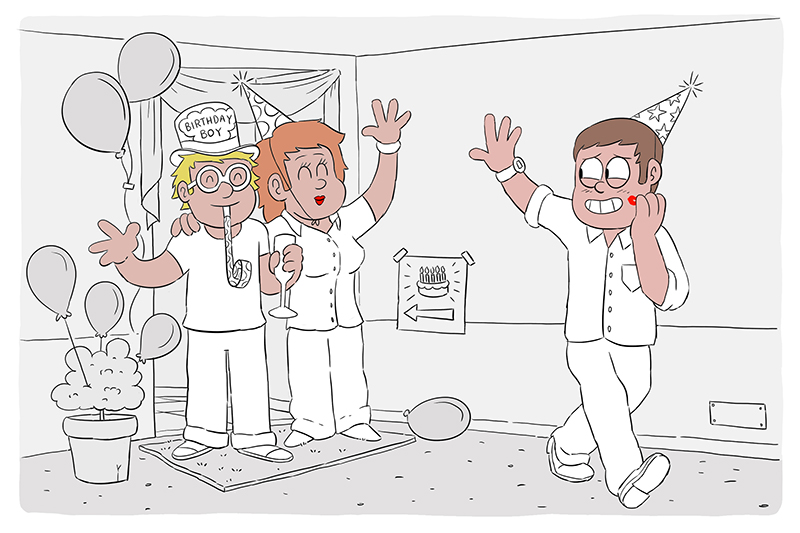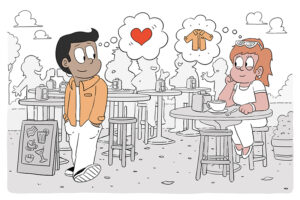
Dylan is an expat and moved to the Netherlands at the request of his company in the United States. He was invited to a colleague’s house one Saturday afternoon for a birthday party. Dylan doesn’t know most of them yet. He gives everyone a firm hand introduces himself. “Hi, I’m Dylan. How are you?”, Dylan said and walked on to the next person. He had practiced his pronunciation well. But not on giving three kisses.
Another view
Dylan got a drink from hostess Marijke and looked around. More guests come in and he sees that some kiss each other on the cheek but others only shake hands. It is his first visit to someone’s home and is not sure how things go. Two hours later Dylan goes home again and says goodbye to his birthday colleague and his wife, Marijke. The latter casually stands in front of him and gives him three kisses. Dylan is surprised. An unknown woman handing out three kisses out of the blue….. Hans is more rigid again, just giving a hand. The hug that Dylan wants to give him he leaves out.
The circumstances
Different ways of greeting are used in the Netherlands and there are no clear rules when to use which one. Even for Dutch people, three kisses or a handshake is sometimes confusing. It depends on how well you know someone.
In America, people clearly differentiate between business and personal circumstances. Business always includes a firm handshake and a friendly question about how things are going. Not really meant for an extended answer. Privately, a brief, fleeting hug is soon common. But a kiss is for close family and loved ones.
Where is the connection?
That kissing causes confusion for many visitors and newcomers. It is difficult to determine when you know someone well enough to kiss. It is best to leave that assessment to the Dutchman and thus wait and see.
It’s all a bit confusing, and Marijke could have asked Dylan, for example, if she could say goodbye “Dutch style. But with a brief American hug, she probably would have found a nice middle ground.
Awareness of and mutual respect for these differences help Dylan and Marijke move toward each other and be even finer acquaintances to each other.
Explanation
Holland has a feminine culture where care is taken to ensure that everyone participates equally. In this story, it means greeting everyone at the party and often saying goodbye to everyone (or most). After the Corona pandemic, waving from a distance is also okay (and easy). Dutch are very individualistic and egalitarian people: everyone is addressed in the same informal way. No distinction is made by profession, status or position.
In the Netherlands we rather go our own way. Nowadays the hug, especially after corona, is common when Dutch people know each other a little better. But the older generations seem to fall back on the three kisses. Business is a little easier. A firm hand, looking at someone and a brief greeting. You only ask how things are going when there is time to answer that question properly.
Want to read more about culture dimensions?
Important to know:
This anecdote is based on stories shared with us. Connect2Us strives to highlight the dilemma from both sides and not to label people or suggest that one or the other should behave differently. We see in our daily intercultural work that awareness by those involved is enough to move toward each other without pretending to be very different. Connect2Us aims to help readers recognize and avoid prejudice. Read about prejudice, discrimination and racism here.

